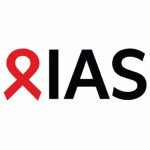A variation in a human gene may explain why a small percentage of people living with HIV progress to AIDS only very slowly, or not at all. According to a report detailing the results of a handful of studies, published in the May 5 issue of Nature, the HLA-B57 gene variation causes a more complete CD8 cell response to HIV in the earliest stages of infection, ultimately giving the immune system the upper hand for decades to come.
HLA-B is part of a family of genes called the human leukocyte antigen (HLA) complex. The HLA complex helps the immune system distinguish the body’s own proteins from proteins made by foreign invaders such as viruses and bacteria.
There are many variations of HLA-B in the human population. Some versions, or alleles, appear to be associated with an increased risk of certain health problems.
HLA-B27, for example, appears to increase the risk of ankylosing spondylitis, a form of autoimmune arthritis, whereas HLA-B57 (notably HLA-B5701) is associated with a higher risk of autoimmune psoriasis and hypersensitivity to abacavir (an HIV med found in Ziagen, Epzicom and Trizivir) in people living with HIV. A likely reason for this is because CD8 cells primed by HLA-B57 are less able to recognize cells in the body and, thus, more likely to attack healthy tissues when prompted.
Ironically, these two alleles have also been associated with slower progression to AIDS in people living with HIV. Other alleles, including HLA-B07 and HLA-B35, have been associated with more rapid progression to AIDS in people not on antiretroviral treatment.
HLA-B57 has been one of several genetic factors researchers have explored while trying to unravel the mystery of long-term nonprogressors (LTNPs) and elite controllers. About one of every 100 people living with HIV is an LTNP, in that they typically progress to AIDS very slowly. Even more rare—one of every 300 people living with HIV—are elite controllers who are able to keep their viral loads below the level of detection without taking antiretroviral drugs.
According to computer modeling conducted by Andrej Košmrlj, a doctoral student, and Elizabeth Read, PhD, of the Ragon Institute of MGH, MIT and Harvard—in collaboration with Bruce Walker, MD, of Harvard Medical School in Boston and other LTNP researchers—HLA-B57 is less likely to present CD8 cells with “self” proteins (proteins natural to the human body) than other alleles. Whereas HLA-B57 only allows CD8 cells to recognize 70,000 of roughly 10 million self proteins, the HLA-B07 allows CD8 cells to recognize close to 200,000 self proteins.
The study authors explain that this poorer recognition of self proteins among CD8 cells in people with HLA-B57 potentially allows the cells to better respond to HIV protein fragments (peptides), notably those that arise during the very stages of HIV infection when the virus is replicating and mutating wildly.
To explore this observation further, Walker’s group looked for associations between different HLA alleles and disease progression in a cohort made up of 2,000 LTNPs and 628 progressors.
What they found confirms what they and other research groups have long suspected. Patients with HLA-B07 and HLA-B35 had more narrow HIV-reactive CD8 cells and experienced more rapid progression to AIDS than those with seemingly neutral alleles. Conversely, those with HLA-B57 (notably HLA-B5701 and HLA-B5703) and HLA-B27 had more broadly reactive CD8 cells and experienced slower progression to AIDS.
Though the implications of this research are not clear, Walker’s group argues that vaccine strategies to make CD8 cells more broadly reactive to HIV are a logical step.







1 Comment
1 Comment